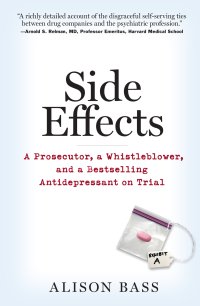In recent years, much of the attention on conflicts of interest in medicine has focused on how lucrative financial ties can influence doctors' ability to carry out unbiased research or give patients sound medical advice. But as the researchers who did the study note, "improper bias in the production of clinical practice guidelines can have a potentially more widespread adverse effect on patient care than individual practitioners' conflicts of interest." That's because such guidelines, which range from how to treat patients with various types of heart disease and stroke to how to do coronary bypass surgery, are often adopted as the standard of care throughout the field and taught in medical training programs at all levels.
As Dr. Steven Nissen, a noted cardiologist at the Cleveland Clinic who commented on the study in an accompanying editorial, put it: To allow individuals with financial conflicts of interest to write clinical practice guidelines "defies logic."
The authors of the study, physicians and bioethicists at the University of Pennsylvania, Thomas Jefferson Hospital and Massachusetts General Hospital, found that more than half of the doctors who wrote clinical practice guidelines in cardiology between 2004 and 2008 served as promotional speakers on behalf of industry, and a substantial number actually held stock in companies affected by the guidelines they wrote. Again to quote Nissen:
"No conceivable logic can defend the practice of including promotional speakers and stockholders on CPG writing committees. Participants in speaker's bureaus essentially become temporary employees of industry, whose duty is the promotion of the company's products."Even more worrisome, the study found that the chairs of these guideline writing committees are significantly more likely (81 percent) than committee members (55 percent) to have a potential conflict of interest. As Nissen says, "Such findings are disturbing and suggest that the decision-making process for selecting chairs for cardiovascular [clinical practice guidelines] is seriously flawed."
Proponents of the status quo often argue that such guidelines are merely a synthesis of scientific evidence derived from randomized clinical trials. But as Nissen notes, research shows that nearly half of these recommended guidelines are based on expert opinion. "The subjective nature of the [guidelines] makes it even more essential that these documents be free of commercial influence," he says.
Nissen then poses the question as to why professional societies have allowed "such extraordinary levels of commercial influence to infiltrate CPG committees?" His answer:
"Professional societies and their leadership are often plagued by the same commercial relationships as the [guideline] committees. Pharmaceutical and medical device companies provide large amounts of financial support for the education and advocacy efforts of professional societies. Such relationships have created a dependency that is difficult to terminate because the leadership of professional societies is reluctant to antagonize their financial benefactors."I'm glad to see Nissen, who has consulted for drug companies and received research funding from some of them in recent years, lay it on the line like this. Hopefully, his plainspokenness is a sign that change is coming. It's past time for doctors in all fields, not just cardiology, to recognize the corrosive influence of industry money on the practice of medicine and stop taking the dough. Only then can patients truly trust their doctors' medical judgments.


